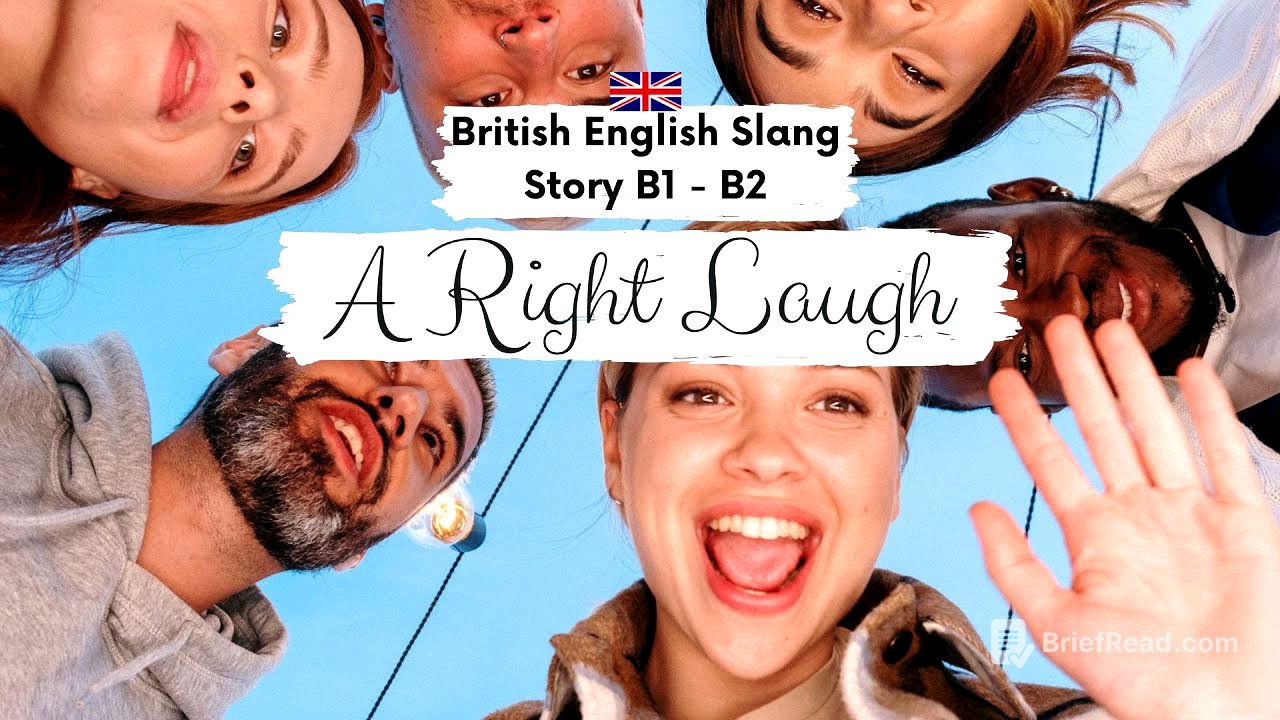TLDR;
This story follows Steph, a German student, as she navigates the world of British slang while studying in Manchester. Initially overwhelmed, she learns common slang terms like "You alright?" (as a greeting), "mental" (wild and fun), "knackered" (tired), and "dodgy" (suspicious). She discovers regional variations and enjoys how slang helps her connect with people and feel more at home.
- Steph learns British slang while studying in Manchester.
- Slang helps her connect with people and feel more at home.
- She learns common slang terms and discovers regional variations.
Steph's Arrival in Manchester [0:51]
Steph, a German student, arrives in Manchester for university, confident in her English skills acquired through years of study, British films, and English-speaking YouTubers. However, she quickly realises that British slang is a completely different challenge. Her journey into understanding and using British slang begins during her first week in the UK.
First Encounters with Slang [1:23]
On her first day of lectures, Steph is greeted with "You alright?" which confuses her as she interprets it as a question of concern. Tom explains it's just a casual greeting. Later, she hears a party described as "mental" and learns it means wild and fun, not dangerous. Steph starts a notebook to record the new and funny words she encounters.
Common Slang Terms [2:25]
Steph's flatmates introduce her to more slang. "Knackered" means very tired, "dodgy" means suspicious or unsafe, and "let's grab a cuppa" means having a cup of tea. She also learns that "fit" means good-looking, not just healthy. British people often shorten words, like "sarnie" for sandwich and "offy" for off-licence (a shop selling alcohol, sweets, and newspapers). "Cheers" is used instead of thank you.
Regional Variations [3:56]
Steph notices that slang differs across the UK. In London, "peng" describes someone attractive, while in Manchester, people say "well fit". During a trip to Blackpool, Tom says, "That was a right laugh, wasn't it?" Steph understands this means it was brilliant.
Becoming Confident with Slang [4:42]
By the end of the term, Steph is more confident and starts using slang herself. She knows "skint" means having little or no money, "rubbish" means not good, and "having a lie-in" means sleeping late. She sometimes mixes up words, causing laughter, but her friends kindly explain the correct usage.
Slang and Connection [5:27]
Steph realises that using slang helps her feel closer to people and more natural in conversations. She joins a student drama group and learns more expressions, such as "chuffed" for when something good happens and calling someone a "legend" for doing a favour.
Slang as a Key to Feeling at Home [6:04]
Steph discovers that learning a language involves understanding the culture, humour, and rhythm of everyday life. British slang becomes a key to feeling at home, making her experience in the UK a "right laugh".









